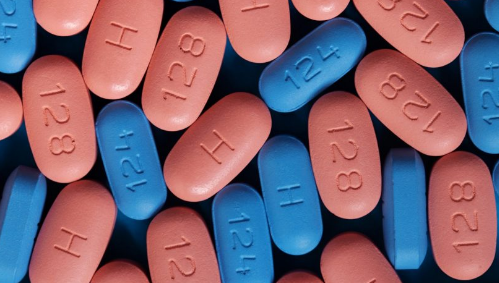Shandong Zhanhua Yonghao
News
Add: GENGJU VILLAGE NORTH ONE KILOMETER,,ZHANHUA DISTRICT,BINZHOU CITY,SHANDONG PROVINCE,CHINA.
+86-543-7596322
Will the newest pill for HIV prevention fuel progress — or profits?
By Douglas Krakower, Kenneth Katz and Julia L. MarcusFeb. 26, 2020
Four decades after the HIV epidemic began, there’s finally hope it might end. Indeed, “Getting to Zero” — meaning zero new HIV infections — is a slogan used by the World Health Organization and others in fighting the epidemic.
A major factor driving this optimism is pre-exposure prophylaxis, commonly known as PrEP, in which people who are HIV-negative take a medication to prevent HIV infection.
For Gilead Sciences, the manufacturer of the only two FDA-approved pills for PrEP, the most important zeroes seem to be those the company is adding to its bottom line.
It’s a tale of two medicines. In 2012, the FDA approved Gilead’s Truvada for PrEP. Generic versions of Truvada will become available later this year, threatening an important revenue stream for the company. (Of note, Gilead is in a dispute with activists and the U.S. government over PrEP patents.)
Enter Descovy, another PrEP pill from Gilead that the FDA approved in 2019. Generics for Descovy aren’t expected until at least 2022, and possibly 2025. Gilead has been aggressively marketing Descovy for PrEP, including a newly launched ad campaign. We’ve heard research teams — which included Gilead representatives — suggest at scientific conferences that Descovy is not only safer but also possibly more effective than Truvada for PrEP.
If that is true, hundreds of thousands of people in the United States now using Truvada for PrEP should switch to Descovy. Gilead’s CEO is hopeful that will happen, having predicted in January that nearly half of those using Truvada for PrEP will become Descovy users by the end of 2020.

That would undermine the fight against HIV.
Truvada works extremely well. Multiple studies have shown that, taken daily, it provides up to 99% protection against HIV infection in many groups, including gay and bisexual men, transgender women, people who inject drugs, and heterosexuals whose partners are living with HIV. As for safety, no serious harms have been reported among over 200,000 U.S. users of Truvada over the past decade. The data are so convincing that the highly respected U.S. Preventive Services Task Force gave daily PrEP its highest recommendation for use in at-risk populations.
By contrast, there’s been only one study of Descovy for PrEP. That study, called DISCOVER, enrolled gay and bisexual men and some transgender women. It showed that Descovy is as effective as Truvada, but no better than it. (Unfortunately, DISCOVER did not enroll other at-risk populations, for whom its effectiveness as PrEP remains unknown.)
In DISCOVER, both Truvada and Descovy had minimal side effects. Some individuals taking Truvada had marginally decreased kidney function or bone health, and some taking Descovy had slight increases in weight or cholesterol. For only a small minority of individuals — like those with kidney problems or high cholesterol — one or the other medicine would be a more reasonable choice. Both medicines are so safe that California now allows people to get PrEP starter packs from a pharmacist without a prescription.
But what about the cost?
The current list price of Truvada — around $24,000 per year — is one reason that more than half of people in the U.S. who could benefit from PrEP aren’t using it. PrEP uptake is far lower among Black and Hispanic individuals than among white people. Descovy’s list price is the same as Truvada’s, offering no financial relief for people who need access to PrEP.
Assistance programs from Gilead and others can help patients get PrEP at low or even no cost. But accessing those programs, or getting prior authorization from insurers, is so complicated that some clinics now employ PrEP navigators to shepherd patients through the process. And although the U.S. Preventive Services Task Force’s recommendation should eventually waive out-of-pocket costs for PrEP, that just means that private or government insurance programs will be left footing the bill.
That’s why we believe that generic Truvada will be so important. Lower-cost medicines can translate to easier access for those who need PrEP, with cost savings used for other aspects of HIV treatment and prevention. In Australia, the introduction of generic Truvada for only $8 per month was followed by a dramatic reduction in new HIV infections.
Perception is crucial. Hyping Descovy over Truvada for PrEP might lead patients or doctors to hesitate to use Truvada, both the brand-name medication and the generic. That’s not a theoretical concern. Prescriptions for Truvada, approved to treat HIV in 2004, declined substantially in 2016, when Descovy was approved to treat HIV.
There’s no question that having another option for PrEP besides Truvada is a good thing. But when choosing a medication, people should rely on evidence, not advertising. Last month, the New York City Department of Health and Mental Hygiene recommended Truvada as the first-choice medication to help ensure the broadest possible access to PrEP.
“Getting to Zero” in the HIV epidemic is now more possible than ever. Let’s just remember that the zeroes that truly count relate to people, not profits.
Douglas Krakower, M.D., is an infectious disease physician and assistant professor of medicine at Harvard Medical School. Kenneth Katz, M.D., is a dermatologist at Kaiser Permanente San Francisco Medical Center. Julia L. Marcus, Ph.D., is an infectious disease epidemiologist and assistant professor of population medicine at Harvard Medical School. Krakower has conducted research with project support from Gilead Sciences. Marcus has consulted for Kaiser Permanente Northern California on a research grant from Gilead Sciences.

